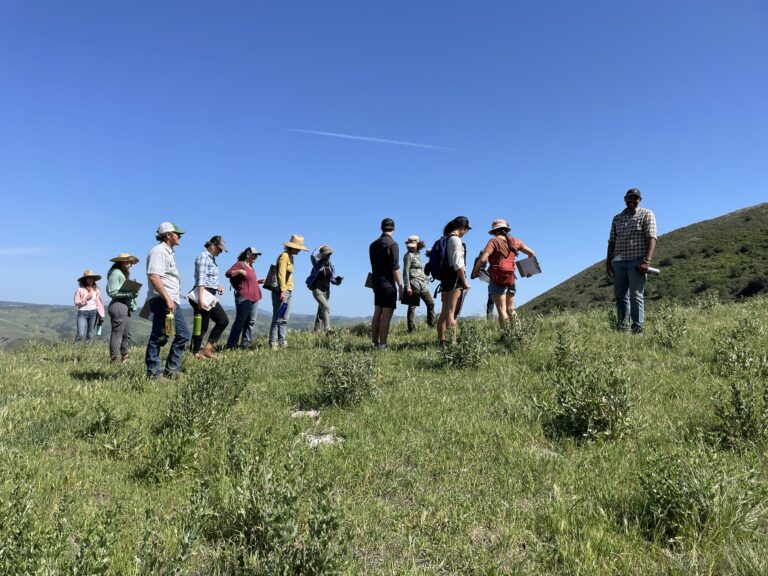Preamble
The Washington Post recently published a report “More than 11,000 scientists from around the world declare a ‘climate emergency.’ The analysis from scientists in 153 countries departs from recent scientific assessments in that it apparently prescribes policies for world leaders.
At the same time, young people like Greta Thunberg, and millions of others, are demanding action from world leaders, while at least one climate action group in Australia is calling for mobilization on a war-footing, as was done in WWII.
It was a discussion between myself and one of the lead authors of the report, Prof. Moomaw, who once taught policy with me, that prompted me to write this proposal, which I do only because of the extreme seriousness of the situation.
Situation Summary
While some scientists doubt human actions are destabilizing our climate through GHGs from fossil fuels, no scientist denies global desertification. Thirty years ago evolutionary biologist Elisabet Sahtouris noted that, “Viewed from space over thousands of years, we would describe humans as a desert-making species.” With desertification on this scale it is simply impossible not to be changing climate. Many things blamed on climate change are symptoms of desertification. And today we find that desertification, mega-fires and climate change are feeding on one another in a deadly feedback loop – a situation more dangerous than all the wars ever fought.
Society believes we face “scientific” problems that will be solved by some silver-bullet technological development. Some scientists, like the 11,000 declaring the emergency, “know” they have solutions. Despite the certainty that we have the solutions, the United Nations has to create new initiatives every decade, most recently Sustainable Development Goals, because the situation continues to worsen. And since March 1995, we have watched the annual UN Conference of the Parties (COP) on climate change make no real progress. The most recent COP25 in Madrid was openly recognized as ending in confusion and failure.
Almost all the attention is focused on GHGs emissions from fossil fuels, but these are not the only reasons for the climate emergency. The following issues have to receive attention if we are to win this war:
- The fact that global finance is driving environmental destruction.
- The fact that we can only act on a large scale through existing, or new organizations/institutions – defined in systems science as complex soft systems, that exhibit wicked problems – in this case preventing solution (as I will explain).
- The fact that even a 100% reduction in the use of fossil fuels will not prevent continued climate change due to desertification in the grasslands and soil destruction by “industrial ag” crop production.
- The fact that successive COP and UN SDG conferences are not even discussing the underlying cause of desertification, dysfunctional institutions, or climate change.
Addressing the Cause of a Problem
A most basic first principle is that to address any problem we have to address the cause, rather than the manifesting symptoms. Only by mobilizing to address the cause can we succeed because this emergency is not something we can mitigate, or adapt to, any more than the slowly boiled frog.
Fortunately, our management of institutions, global finance, agriculture, desertification, and climate change have one thing in common: we are attempting to manage complexity, which opens the possibility of ONE cause of many problems.
While desertification has been expanding for thousands of years, mega-fires burning at latitudes and altitudes not previously experienced is new, as is the accelerating rate of climate change. Institutional scientists generally recognize these are not acts of Nature and recognize it is human actions that are leading to the climate emergency. That said, the same scientists, as well as the media and large segments of society, blame desertification and climate change on livestock, coal and oil, more than anything else.
Resorting to first principles: common-sense tells us that livestock, coal and oil, are resources that will be needed for centuries to feed and clothe people (livestock) and to produce many products from their large carbon molecules (coal and oil). And no resource can ever be the cause of problems of this magnitude. Unarguably, it is the ways in which humans have managed livestock over millennia, and still do, that results in desertification over most of the world where precipitation is erratic. It is management that chooses to treat fossil resources as “fossil fuels” to be burned at a rapid rate. It is management, and not nature, that determines our actions and policies.
When thousands of scientists state that the science is clear, I believe they mean the scientific evidence is clear that humans are causing accelerating climate change. Most people (including scientists), however, interpret that statement to mean that: as scientists we know what actions world leaders need to be taking to address the emergency.
So, we have the fact that we are causing desertification and climate change. And we have agreement amongst scientists that what is causing humans to do this is livestock, coal and oil. Untrue. Clearly our management, and the policies influencing or dictating management, is the cause of what ails us. There is no one “out there”, including Nature, doing this to us.
Management at Scale Requires Organizations and Policies
While individuals can choose to change light bulbs, or walk to work, only collectively through organizations/ institutions and policy can humanity act effectively. Logically, mobilizing organizations and resources to manage the situation is all that world leaders can do on the scale required. Allied leaders won WWII by superb leadership, mobilizing and directing organizations – their armed services, corporations, universities and scientific researchers – under the best leaders they could engage to head them. Personal and institutional egos were largely swept aside, as were ineffective leaders of armies or any of the other organizations involved.
While science played an enormous role, scientists did not manage the war cabinets of Prime Ministers, Dictators or Presidents – world leaders did.
The World Leaders’ Dilemma
Long ago, then Prime Minister Mugabe, said “We do not have a greater problem than our deteriorating land and our rising population. We politicians do not know what to do. We can only take the advice of our advisors but when it goes wrong, we get the blame.”
I believe that statement from a dictator, as he became, sums up the position of every political leader in the world, democratic or authoritarian.
Institutional scientists see the situation as a set of scientific problems, not as an overall management problem. This is perhaps best explained by Canadian historian John Ralston Saul in his best-selling book Voltaire’s Bastards: “The reality is that the division of knowledge into feudal fiefdoms of expertise has made general understanding and coordinated action not simply impossible but despised and distrusted.”
Almost all reasonable, educated people are insisting that we replace fossil fuels with environmentally benign forms of electricity generation. Many institutions still oppose the cessation of fossil fuel use, but as public opinion shifts, so too do institutions, including giant corporations with budgets larger than those of some nations. This is an action that is likely to greatly reduce the GHG emissions from coal and oil. The public are right and opinion will strengthen as is already happening with growing demand and support for disinvestment in fossil fuels.
What actions (other than ending fossil fuel use) are institutional scientists recommending? This was the question I asked Prof. Moomaw as a representative of the 11,000 scientists proclaiming a climate emergency and that led to me writing this proposal.
Specifically, I asked what recommendations would institutional scientists make to world leaders to address any of the following things that have a direct bearing on the climate emergency:
- Global finance driving environmental destruction
- The massive legacy load of GHG’s, that have to be sequestered in soil, or oceans for thousands of years
- Global desertification occurring over about two thirds of the world’s land area where annual humidity is erratic, whether rainfall is high or low.
- Industrial agriculture being the most destructive and extractive industry in history – producing well in excess of 75 billion tons of dead eroding soil per annum (more than twenty times the amount of food required to feed every human alive today).
- Annual burning of billions of hectares of the world’s grasslands and periodic burning of millions of hectares of the world’s tropical forests.
- The destruction of vast tropical forests to run livestock and/or grow crops to feed livestock.
- Institutions in the form of corporations supported by governments rapaciously harvesting ocean life and forests for short-term financial gain
- Massive silting of ocean shelves: the most biologically productive ocean zones
- Massive environmental pollution – plastic, chemical and electro-magnetic – damaging human health and habitat and reducing biodiversity
To address these climate-changing influences, a small minority of people, including some scientists outside mainstream institutions, are appealing for the development of a poorly-defined regenerative agriculture, while the vast majority of scientists staffing our larger institutions (universities, governments, corporations and environmental organizations), supported by the media and celebrities, are advocating little but planting billions of trees, eating less meat, or becoming vegan.
Having made, what I believe is the unarguable point that it is management that is causing the climate emergency, I must now also point out that it is this same management that is also the cause of most conflict in the world, as well as the chaos and confusion over what actions institutional scientists should recommend to world leaders.
This brings me to what I would like to propose as a constructive way forward for world leaders to consider in addressing our climate emergency.
A Solutions Retreat
Because the emergency is real and time is a luxury the youth of today do not enjoy, and because we cannot afford more decades of confusion and disappointment at successive COP conferences, I propose we build on work done forty years ago in the United States. This is briefly the work to which I refer.
In the early 1980’s far-sighted officials in the U.S. Department of Agriculture engaged me, an independent scientist in exile, to put over 2,000 scientists, and others, through a week of training, over a two-year period, in the use of the Holistic Management framework, which I had begun developing in Rhodesia before I was exiled in 1978. This large sample of professional people came from the U.S. land management agencies – the Department of Agriculture, Bureau of Land Management, Bureau of Indian Affairs, Soil Conservation Service, Fish & Wildlife Service, and Forest Service, as well as from a number of land-grant universities, USAID, and the World Bank. The participants brought hundreds of their own policies to analyze during training. They themselves concluded that every policy they analysed was developed in the same manner (including policies developed by integrated interdisciplinary scientific teams) and would lead to unintended consequences and fail. One group recorded a statement published some forty years ago in my textbook, Holistic Management, “We now recognize unsound resource management is universal in the United States.” Similar training, but with smaller samples of scientists and managers in India, Lesotho and Zimbabwe resulted in similar conclusions.
Over the past sixty years, building on the theory of holism proposed by Jan Smuts in Holism and Evolution in1926, this management framework has been developed with the help of thousands of people. They include the participants from those courses in the early 1980s, as well as my early mentor Sir Frank Fraser-Darling, two American Fulbright Scholars working with me in Africa, and thousands of farmers, ranchers, wildlife managers, foresters, soldiers and fellow scientists acting outside their institutions. As it has been throughout history, individuals lead paradigm-shifting changes while institutions defend the status quo. In the second Reagan Administration influential authorities in major universities had all further training of government agencies and universities banned. An action that is normal institutional behaviour as we know from history and from research by scholars such as Eric Ashby (Reconciling Man with the Environment) and Thomas Kuhn (The Structure of Scientific Revolutions).
Knowing what is possible I would like to propose that one person with sufficient influence, or a small group of influential people, convene a “Solutions Retreat” for world leaders and scientists. In doing this, we take one non-controversial issue and have the appropriate people use the Holistic Management framework to develop policy.
That one issue is the management of national parks. This is as uncontentious an issue as we can find as we “know” that national parks are not contributing to climate change and our management of them is generally viewed as good.
Globally, if there is any flaw in the way nations develop policies and manage resources, where better could we identify it than in national parks?
If we were to look at any situation in the world, other than national parks, we would find something that someone could blame for generating conflict, or anything else that might be going wrong – greed, corporate misbehaviour for short term profits, global finance driving environmental destruction, politics, corruption, cattle overgrazing and emitting methane, mining, urban expansion, factory animal production, forest clearing for pastures, overfishing oceans, tragedy of the commons, neglect ….. and so on endlessly.
Now, let’s look at the state of national parks around the world to see if it is worth world leaders heeding my proposal. Is there any evidence that our management of national parks is contributing to the climate emergency and to conflict? Well, yes there is.
If we look at terrestrial (rather than marine) national parks in England, Germany, France or on the east or west coasts of America, Costa Rica, we find few if any signs that there is anything wrong with management, or that they are in any way contributing to the climate emergency. These national parks lie in humid regions where throughout the year the distribution of humidity is more like London than Johannesburg, which receives about the same rainfall.
Now, what about terrestrial national parks in the rest of the world where humidity is erratic with prolonged dry spells, whether rainfall is high or low? More like Arizona or the Sahel than Florida, Costa Rica or France. In these much more extensive regions of the world, we find that national parks are amongst the best examples of habitat destruction for both wildlife and humans, and they contribute greatly to global desertification, climate change, conflict and confusion over what to do.
Here are two examples of national parks – one in the United States the other in Botswana.

This national park in the United States, was in the past a healthy grassland supporting an irrigation-based civilization.

This national park in Botswana above, looked like the picture below (taken just outside the park on the same day) when I first visited the park in about 1947.

Because of the lack of published papers about the contribution of national parks to the climate emergency and rising conflict, more photos from national parks and protected areas in the U.S., UAE and Africa are included in appendix A.
What do Scientific Experts Recommend for Managing National Parks?
Institutional scientists, with a high degree of expertise, state that the science is clear. So, let’s look at the advice of, not only local experts, but also those in our large environmental organizations such as the World Wildlife Fund, The Nature Conservancy, African Parks, IUCN, Conservation International, and Audubon.
In Africa, these are the recommendations from local and international experts, including from a recent international conference held in Botswana to solve what is called “the elephant problem”:
- Secure the borders of the national parks.
- Mount more militant action against poachers.
- Burn the vegetation more regularly to provide a green flush.
- Provide more artificial watering points and alternate use of water points to prevent damage around them.
- Tranquilize and relocate elephants to other areas.
- Sterilize female elephants.
- Cull elephants once more to reduce elephant numbers.
- Involve stakeholders and share income from parks with neighbouring communities.
- Resume banned sport hunting (the outcome of the Botswana conference, although already being opposed in Kenya by the large international environmental organizations, and by mounting public anger in developed countries).
In the United States, with no elephants to blame, scientists in government agencies, environmental organizations and universities are simply ignoring the state of their national parks and protected areas such as the Aldo Leopold Memorial Forest (shown in appendix A). The U.S. has spent vast sums on soil conservation measures including planting trees, shrubs and grasses in national parks that have failed to reverse the desertification, and they have now, apparently, given up. The same desertification being exhibited on US government research plots in the regions of erratic humidity is attributed to “unknown processes” in a position paper on climate change published by the International Range Society that I used in a 2013 TED Talk on desertification.
Conflict and Confusion Caused by Management
Of the measures local and international experts advocate, there is only near unanimous agreement on two points – better border security, and more militant action against poachers. However, neither insecure borders, nor any poaching, has the slightest thing to do with the appalling habitat destruction witnessed in these parks, or for that matter in those of the United States. With all other suggested actions there is dissention and argument.
Scientists, even in sophisticated interdisciplinary teams assembled to ensure policies address social, environmental and economic consequences, unknowingly reduce this web of complexity to the “problem” as the reason or context for policy actions. Scientists are not alone in such reductionist management. It is, as we discovered forty years ago, universally human. Each of us daily reduces the web of complexity to the simplicity of meeting our needs, desires or addressing problems in our lives. We do this from household to governance, from single person to sophisticated interdisciplinary scientific team. And when facing problems such as deterioration of national parks, or climate change, experts, and institutions vie for validity and funding of their “solution.” Professional and institutional egos become powerful vested interests, and argument, confusion, and conflict become the norm. I believe that most human conflict originates in differences over objectives or actions as we meet our needs, desires or address problems, unknowingly ignoring the web of complexity surrounding all management.
In the case of the African national parks, no matter what expert scientific advice national political leaders heed, there will continue to be conflict while the parks continue to contribute to climate change. Already every suggested action has its opponents, and large environmental organizations are interfering in sovereign states, adding to conflict as they have so often done during my long life studying the problem.
I picked the management of national parks as the simplest example to illustrate what is happening globally, including at successive UN and COP conferences. Frankly, if world leaders do not focus on the reductionist management and policy development that is causing confusion, conflict and climate change it is Check Mate – game over: Nature won.
A Solutions Retreat
In Zimbabwe at the Africa Centre for Holistic Management close to the Victoria Falls we have, over the past two years, run two Solutions Retreats to see what could be done to solve the national parks problem. People with the widest range of conflicting views who would agree to participate did so, while institutions declined to participate.
Participants first discussed every known measure being advocated, or practiced, by any institutions or individuals to end poaching and ensure the survival of Africa’s wildlife in the wild. The good intention and results were acknowledged but recognized as short term Bandaids on a dying patient as long as the parks continued to contribute to desertification and climate change. When there was agreement, albeit very reluctantly from participants deeply invested in particular “solutions”, that the situation was steadily worsening, we suggested using the Holistic Management framework to see if that would help.
The first step was to avoid any conflict by initiating the process with the creation of a holistic context for the parks we would manage that is an expression of what is desired that lies beyond the problems to be addressed. This context is then used to guide decision making as people decide what policy would ensure actions that would resolve the problem in that context.
Such a holistic context, developed by the appropriate people with full agreement and no compromise over any aspect, is essential before any discussion can take place about what to do to address any need, desire, or problem. In this instance, we determined that the people who had to create the necessary holistic context were not present. We could not form any policy without full participation by the people who made day to day decisions in and around the national parks – government agencies, agro-pastoralists, hardcore poachers, safari hunters. And we needed the people who, through influencing public opinion, have near veto power over management – local and large international environmental organizations and industries dependent on the wildlife and tourism.
The second Solutions Retreat was now at a stalemate. We had representatives of most groups needed, from local Chiefs representing tribesmen, local environmentalists, small NGO wildlife organizations, researchers, hunters, tourist operators, and even staff of large environmental organizations as individuals, but unable to speak for their organizations. Everyone recognized the stalemate because only institutions can develop policies at this scale and we had no representation by any of the vital institutions, all of which had declined to participate. And as is known from the research of Thomas Kuhn, Eric Ashby and the systems science concept of “wicked” problems in complex soft systems (human organizations) this rejection is the normal institutional response to paradigm-shifting insights. I can find no case in history where an institution has accepted any paradigm-shifting concept ahead of public opinion, nor apparently could Eric Ashby. Institutional acceptance, as he wrote, can take up to 200 years and the Holistic Management framework was only developed forty years ago and has been under near relentless institutional attack since. At the same time, it has continued to gain increasing support to the extent there are now fifty locally led and managed Holistic Management hubs on six continents, including the first university-led hub in the U.S.
Rather than simply depart, we decided to use a “generic” holistic context that would approximate the holistic context that all parties would develop if participating.
We agreed that the purpose of national parks was primarily to preserve the full biodiversity of nature in aesthetically beautiful selected areas for the benefit of everyone. And everyone involved developing policy, managing, influencing or affected by the management wanted stable families living peaceful lives in prosperity and physical security while free to pursue their own spiritual or religious beliefs. Plus: adequate nutritious food and clean water; good education and health; balanced lives, with time for family, friends and community, and leisure for cultural and other pursuits. All to be ensured, for many generations to come, on a foundation of regenerating soils and biologically diverse communities on Earth’s land and in her rivers, lakes and oceans.
With this holistic context that we believed almost all the people involved: poachers, heads of environmental and hunting organizations, all political party heads, etc would relate to and accept without compromise, we proceeded to learn whether any policy could solve all the issues.
We quickly realized that we had to expand our horizon. All of the surrounding lands are desertifying for the same reason as the national parks (and the parks in the US). Thus, any policy to succeed had to include agriculture (production of food and fibre) with the surrounding lands and people. It also became apparent that “land ownership” should not be confused with “management”- i.e. that management needed to be holistic embracing cultures and economies across boundaries with wildlife being an important resource in everyone’s lives.
What emerged was exciting to those participating. We were able to develop the outline of a policy government could implement with full international support, that would result in steadily rectifying the situation. National parks would begin regenerating to their former stability and biodiversity, poachers would be in greater danger than rhino, everyone would enjoy a better life in many ways. The entire region, including the parks and surrounding lands would begin seriously addressing climate change by ending biomass burning, sequestering carbon, rainfall becoming once more effective and decreasing droughts and floods, and people becoming self-sufficient not requiring aid as today. Literally everyone would be better off, other than middlemen from other nations in the illegal wildlife marketing chain, whose source would dry up.
I do not provide detail of this policy foundation because, all agreed that if we announced the changes such a policy would require of people who had not gone through the process and developed the policy themselves, it would lead to years of enormous conflict because of professional and institutional egos. Unless political leaders of parties, senior people in relevant government agencies, and especially the large international environmental organizations, actually developed the holistic context and the policy, they would view the actions in relation to the problem of deteriorating parks. We would ourselves be recommending actions, when everyone hearing them had no context but the problems. There was, we all realized, only one constructive way forward, which was to do all in our power to find someone with sufficient convening power to invite the needed parties to a similar retreat to develop national parks policy.
Suggested Countries for Consideration
I would suggest for consideration convening a solutions retreat preferably in Africa where there is a cluster of national parks contributing to climate change – Zimbabwe, Zambia, Botswana and Namibia – through the loss of soil that once sequestered carbon.
.

The Victoria Falls, where many large international meetings take place, is surrounded by national parks in four countries and would be ideal. The President of Zimbabwe has already agreed to work with Savory Institute to develop an agricultural policy holistically and that would also cover national parks. He is, however, not moving forward but might if he knew the global importance. Local people have long tried without success to interest the governments of Botswana and Zambia in developing policy holistically. A possibility is for the Solutions Retreat to begin with Zimbabwe or Botswana for ease, while having observers from many nations.
Conclusion
The aim of this proposal goes beyond saving national parks. My intent is to use the example of national parks to demonstrate that the management causing climate change is also causing conflict and confusion, chaos and lack of action, rather than any lack of political will on the part of world leaders. And to show that the same institutional scientists using the Holistic Management framework, themselves begin to work in harmony helping solve problems with their immense knowledge and goodwill. It would be a demonstration that enables world leaders to envision the power at hand in the tremendous knowledge held by their institutional scientists once they address the reductionist policy development leading to climate change in their own “war cabinets.”
For thousands of years hundreds of men died trying to learn to fly. Then on a given day the Wright brothers flew and with human creativity we were on the moon in seventy years. The human spirit flew. For thousands of years we did not know how to manage complexity and entire civilizations perished as a result, and now the threat is global. In 1984 thousands of scientists and others in their individual capacities learned how to manage complexity. Just as soon as world leaders learn what is possible I believe the human spirit will fly giving future generations a fighting chance.




